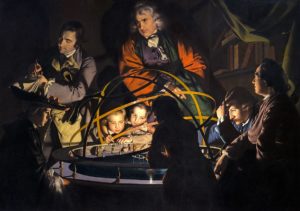 Polytheism: The Greco-Roman Religion
Polytheism: The Greco-Roman Religion
In our time, people call the old religion of the Greeks and Romans paganism, but none of the Greeks or Romans used that term. They just called what they did “revering the gods.”
The first thing to understand about these gods was that there were very many of them, and that this caused no conflict for these people. This system was polytheistic, meaning that it featured many deities… many gods. This seemed very normal to people, because there were so many forces active in the world at the same time: winds, rains, good luck, bad luck, oceans, rivers, and so on. There were gods for each city, of course, but there were hundreds of lesser gods who might influence everything from boats to doorknobs. There were many types of shrines in the cities of this era, and it was quite normal for people to pick their favorites, or at least the ones they thought were most important to them at the moment.
People were expected to honor the god of the city where they lived, of course, but they were free to honor others as well. And as we noted previously, there were no books of scripture for these religions. There were stories about the gods, but even those were inconsistent. The Greeks had the books of Homer and the books of Hesiod, which did not always agree. The Romans had several different founding myths, from several authors.
So, these were not religions based upon books. They were rather founded upon proper practice. And they were not really about morality, but rather of getting the gods to do things for them.
The priests of the various gods in Greece and Rome were prominent people from old and wealthy families, and they were expected to perform the necessary rituals very precisely, or else it was believed that the god would not listen.
Temples in the Greco-Roman world were not necessarily a building; what really created a temple was a wall built around a sacred space. Within that wall would sometimes be built a very impressive shrine, and in that shrine was placed a statue of the god. People didn’t believe that the god lived in that temple (holy space) or shrine, but they did believe the god would come and inhabit the statue on certain days, provided that the necessary rituals were properly performed.
What usually happened was not terribly different, outwardly, from a Catholic or Orthodox procession: People gathered to the temple or shrine, the proper rituals were followed, their would likely be a sacrifice of animals (the animals being killed and cooked), and the statue of the god was then paraded though the city, perhaps then to an amphitheater, and finally returned to its place. There were many variations of these practices, of course, but that’s a good general description.
What people sought were favors from the gods: For them to heal a sick relative, to show them which choice to make on a difficult issue, to bless their fields and herds, to help them find a good husband or wife, and so on.
Each city would hold occasional religious festivals, and that’s where Greek literature took shape. There were literary competitions at these festivals, with people voting on which author’s drama or comedy was the best.
One novel part of the Greco-Roman religion was the oracle. It played a similar role to the prophet in the Hebrew religion, providing direct communication from the god or gods. The main oracle in Greece was at a place called Delphi, though there were others. To get an answer from the oracle, you’d have to travel there, undergo a preparation process, then, hopefully, be lucky enough to be chosen for an audience. (There seems to have been a sort of raffle for this.) The powerful and those who gave large donations were more or less assured an audience.
The priestess of the oracle would (perhaps assisted by priests) provide an answer to your question, though often a rather cryptic one. In one famous case, an emperor asked if he should go to war with another emperor. The priestess replied that if he crossed the boundary river between them, “A great empire will come to an end.” That could have applied to either of them, of course, but the emperor who inquired marshaled his forces, crossed the river with them, and lost his empire.
Oracles were questioned often, and especially for large ventures. It seems that nearly all Greek colonies were given some sort of endorsement from an oracle.
It’s also useful to understand that the Romans worshiped nearly the same gods as the Greeks, but gave them different names. Zeus became Jupiter, Ares became Mars, Hermes became Mercury, and so on.
**
Paul Rosenberg
freemansperspective.com
* * * * *
Please take a look at our subscription letters; they are unique. You can review the back issues here and order here.
